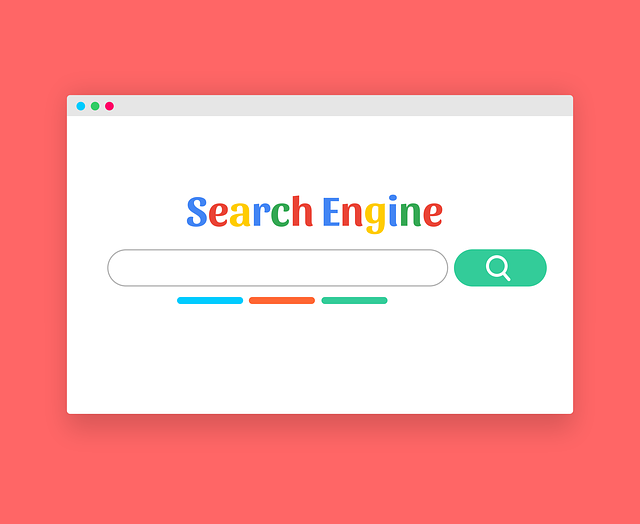Starting your SEO journey doesn't require a large budget or advanced expertise. Through free online resources and affordable tools, beginners can learn fundamental strategies like keyword research, on-page optimization, and content creation. These entry-level tactics, including mobile-friendliness and structured data markup, build a solid foundation for future SEO success. By measuring key performance indicators with tools like Google Analytics, marketers can adjust their strategies effectively. Continuous learning through budget-friendly training keeps practitioners competitive in the dynamic digital landscape.
“Unleash your digital marketing prowess with our comprehensive guide to Entry-Level SEO Tactics. This beginner’s journey delves into essential strategies for boosting online visibility without breaking the bank. From keyword research using budget-friendly tools, to mastering on-page optimization and content creation techniques, you’ll discover actionable tips. Learn about building backlinks, understanding technical SEO fundamentals, measuring success through KPIs, and staying ahead in a dynamic landscape. Empower yourself with this practical, cost-effective SEO training.”
Understanding Entry-Level SEO: A Beginner's Guide

Beginning your SEO journey can feel intimidating, but it doesn’t have to be. Entry-level SEO tactics are accessible and budget-friendly, making them a great starting point for anyone looking to optimize their online presence. These strategies focus on foundational elements that every website needs, regardless of size or resources.
Understanding basic concepts like keyword research, on-page optimization, and high-quality content creation is the first step towards effective SEO. There are numerous online resources, including budget-friendly training programs, that teach these fundamentals without breaking the bank. By grasping these entry-level tactics, you’ll be well-equipped to lay a solid foundation for more advanced SEO practices in the future.
Budget-Friendly Tools for Effective Keyword Research

For those just starting out in SEO, keyword research can seem like a daunting and expensive task. However, there are numerous budget-friendly tools available that offer robust features for effective keyword research without breaking the bank. These tools empower entry-level SEO practitioners to gain valuable insights into search trends, identify relevant keywords, and understand their competition—all essential steps in optimizing online content.
One popular option is using Google’s free Keyword Planner, which provides data on search volume, suggested bids, and average position for various keywords. Another useful tool is Ubersuggest, offering a comprehensive suite of features, including keyword ideas, backlink analysis, and social media tracking, all within a user-friendly interface. Additionally, tools like SEMrush and Ahrefs provide limited free trials or basic plans, allowing newcomers to SEO to access powerful data without significant cost. These budget-friendly options level the playing field, enabling individuals to enhance their SEO skills through practical training and gain valuable experience in this competitive field.
Optimizing On-Page Elements for Better Rankings

When it comes to entry-level SEO tactics, optimizing on-page elements is a powerful and budget-friendly strategy for boosting your website’s rankings. This involves refining key components within your web pages to ensure they align with search engine algorithms’ criteria. One of the most effective practices is keyword optimization, where you strategically place target keywords in titles, headings, meta descriptions, and content bodies. This helps search engines understand your page’s context, leading to higher relevance scores.
Additionally, enhancing on-page elements includes optimizing images with alt tags, improving URL structures for better readability, and ensuring proper internal linking. These techniques not only make your site more user-friendly but also provide valuable signals to search engine crawlers, fostering a positive ranking experience. With the right focus on these budget-friendly SEO training practices, you can lay a solid foundation for your website’s online visibility and performance.
Leveraging High-Quality Content Creation Techniques

Creating high-quality, relevant content is a cornerstone of successful entry-level SEO strategies. This involves employing techniques such as keyword research to understand your target audience’s search queries and integrating those keywords naturally into your content. Budget-friendly SEO training emphasizes the importance of writing compelling, informative, and unique copy that provides value to readers, which in turn improves user experience and reduces bounce rates.
By leveraging these content creation strategies, entry-level marketers can enhance their website’s on-page optimization without breaking the bank. Well-crafted content not only attracts organic traffic but also encourages social sharing and backlinks from other websites, thereby boosting your site’s authority and search engine rankings over time.
Building Backlinks: Strategies for New SEOs

Building backlinks is a crucial aspect of entry-level SEO, especially for those new to the field. As a beginner, it’s essential to understand that link building isn’t about buying or paying for links; instead, it’s an organic process that involves attracting and earning high-quality backlinks from reputable sources. One effective strategy is to start by identifying industry-related blogs, forums, and online communities where your target audience engages. Engage with these platforms actively by contributing valuable content, answering questions, and participating in discussions. This builds visibility and establishes you as an expert, encouraging natural backlinks over time.
For budget-friendly SEO training, many resources are available to help new SEOs get started. Utilizing guest blogging on relevant websites is a great way to begin. Offer to create informative, engaging content that provides value to the site’s readers. This not only attracts links but also helps in establishing relationships with influencers and industry leaders. Additionally, reaching out to local businesses or organizations for potential partnership opportunities can be beneficial, as it allows for resource sharing and link acquisition through mutual support.
Technical SEO Basics Every Beginner Should Know

For beginners venturing into the realm of SEO, understanding technical fundamentals is a crucial step in their budget-friendly SEO training. Technical SEO involves optimizing the behind-the-scenes aspects of a website to enhance its search engine visibility and performance. One basic yet often overlooked element is ensuring your site is mobile-friendly, given that most users now access the internet primarily through smartphones and tablets. Google’s algorithms prioritize mobile usability, so ensuring your site adapts seamlessly to different screens is essential for better rankings.
Another fundamental practice is implementing structured data markup, which provides search engines with a clearer understanding of your web page content. This simple yet powerful tactic helps search engines index your pages accurately, resulting in richer snippet displays in search results. Moreover, creating an XML sitemap and submitting it to search engine consoles facilitates easier crawling and indexing, ensuring your site’s content is discovered and indexed efficiently.
Measuring Success: Analyzing Key Performance Indicators (KPIs)

In the realm of Entry-Level SEO Tactics, understanding how to measure success is a crucial step for any budding SEO specialist. Budget-friendly SEO training often emphasizes the importance of Key Performance Indicators (KPIs) as a way to gauge the effectiveness of search engine optimization efforts. By tracking these metrics, marketers can make data-driven decisions and adjust their strategies accordingly. KPIs provide insights into the visibility, engagement, and return on investment (ROI) of SEO campaigns, enabling professionals to optimize their approach for better results.
Analyzing KPIs involves evaluating a range of factors such as organic traffic growth, click-through rates (CTRs), conversion rates, and backlink profiles. Tools like Google Analytics play a vital role in monitoring these indicators, offering valuable insights into user behavior and the overall health of a website’s search engine rankings. Through regular analysis, SEO practitioners can identify trends, pinpoint areas for improvement, and ensure their budget-friendly strategies are delivering tangible outcomes, ultimately enhancing the site’s online presence and attracting a wider audience.
Continuous Learning: Staying Updated in the SEO Landscape

In today’s digital era, the landscape of search engine optimization (SEO) is ever-evolving, with algorithms and best practices constantly shifting. For entry-level marketers or small business owners on a budget, staying updated can seem daunting. However, continuous learning is not only feasible but essential to keep up with this dynamic field. Budget-friendly SEO training opportunities are abundant, from free online courses offered by reputable platforms to community workshops that cater to beginners. These resources ensure that individuals don’t have to break the bank to gain valuable knowledge and skills in SEO.
By dedicating time for continuous learning, one can master fundamental tactics like keyword research, content optimization, and link building. Keeping abreast of industry trends and updates from major search engines also enables practitioners to implement effective strategies that drive organic traffic to websites. This proactive approach ensures that entry-level SEO practitioners remain competitive in the market, providing significant returns on their investment in knowledge and resources.
